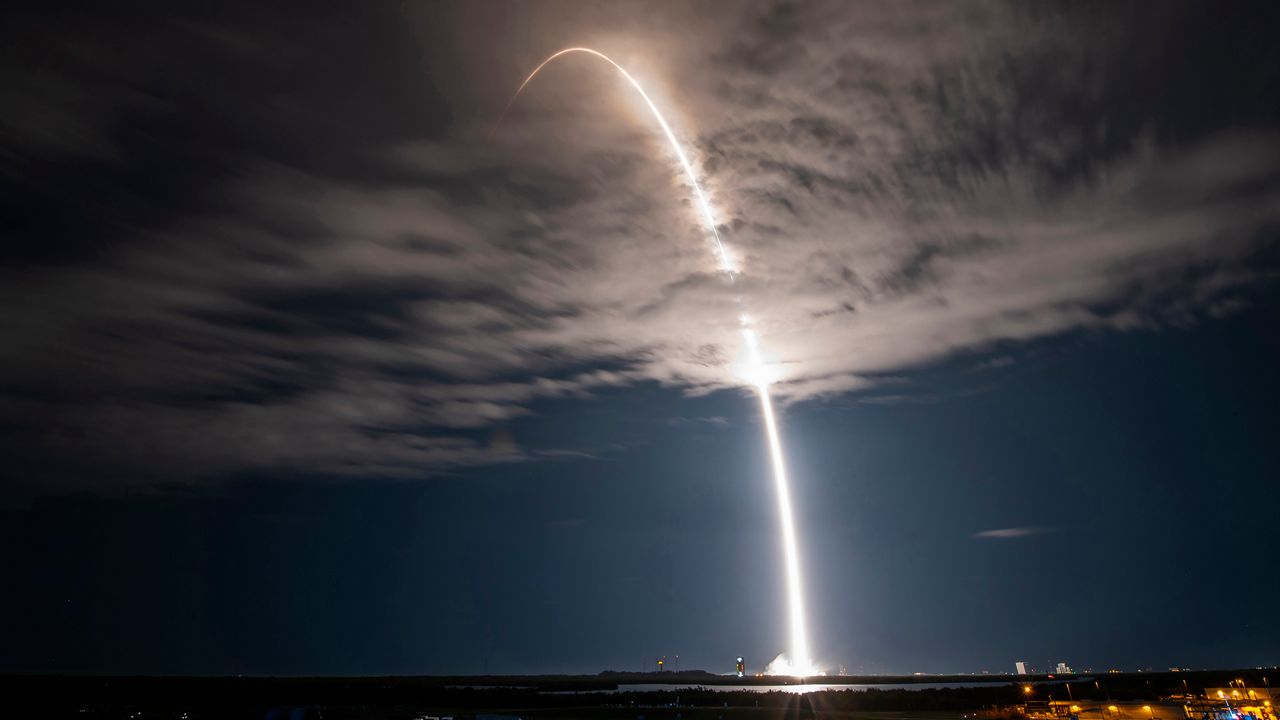CAPE CANAVERAL SPACE FORCE — While there was a delay in liftoff time, SpaceX was able to launch more than 20 Starlink satellites late Tuesday night.
What You Need To Know
- SpaceX sent more than 20 Starlink satellites into orbit Tuesday evening
- The Falcon 9 left Space Launch Complex 40 at Cape Canaveral Space Force Station
Liftoff! pic.twitter.com/5SkARIOQ2y
— SpaceX (@SpaceX) September 20, 2023
SpaceX’s Falcon 9 rocket left Space Launch Complex 40 at Cape Canaveral Space Force Station to send more than 20 Starlink satellites into the deep black.
Tuesday’s launch window was supposed to open at 10:47 p.m. ET, but SpaceX decided to hold off and use one of its four backup chances, which happened at 11:38 p.m. ET, the California-based company stated.
The company did not give a reason for using one of its backup attempts.
The 45th Weather Squadron gave a forecast of a 60% chance of good launch conditions for Tuesday evening.
“The most likely weather violation to occur during the primary launch opportunity is cumulus clouds associated with onshore-moving showers, with the added possibility of remnant clouds from decaying thunderstorms for the delay day,” stated the squadron.
Discover more about NASA’s weather criteria for the Falcon 9 rocket here.
If the Tuesday night launch did not happen, SpaceX would have tried again on Wednesday, Sept. 20, with five attempts from 10:22 p.m. ET to 1:21 a.m. ET, Sept. 21, Thursday.
An old pro to launches
Before the Starlink 6-17 mission launch, the Falcon 9 first-stage booster B1060 has an impressive 16 successful launches under its super-wide belt:
- GPS III-3
- Turksat 5A
- Transporter-2
- Transporter-6
- Intelsat G-33/G-34
- 11 Starlink missions
After the stage separation, the first stage landed on the A Short Fall of Gravitas droneship that was out in the Atlantic Ocean.
Falcon 9’s first stage has landed on the A Shortfall of Gravitas droneship, completing the first 17th launch and landing of a booster pic.twitter.com/DFCw43FoVw
— SpaceX (@SpaceX) September 20, 2023
About the mission
The Starlink Group 6-17 mission sent 22 Starlink satellites to low-Earth orbit, joining so many already up there.
The SpaceX-owned company Starlink explained that thousands of its satellites provide internet services to parts of the world.
Before the launch, the current number of Starlink satellites — recorded by Harvard-Smithsonian Center for Astrophysics’ Dr. Jonathan McDowell — are as follows:
- 4,764 are in orbit
- 4,734 in working order
- 4,097 are operational



